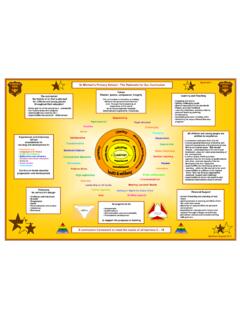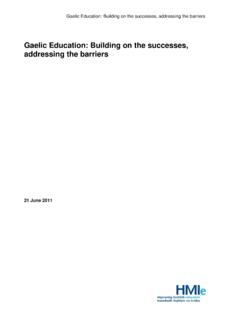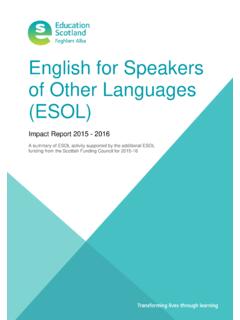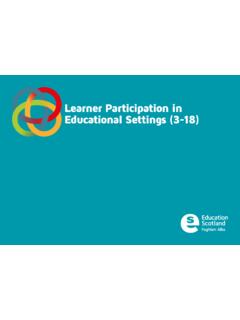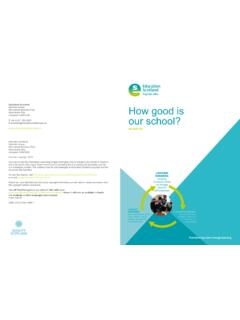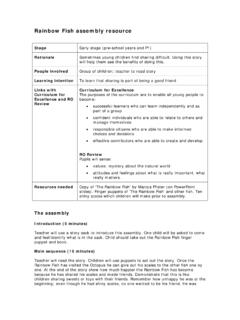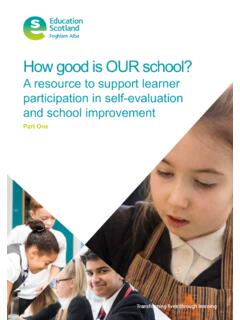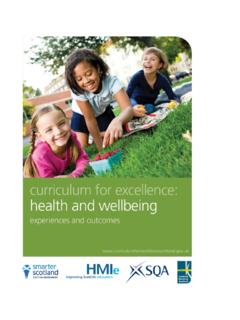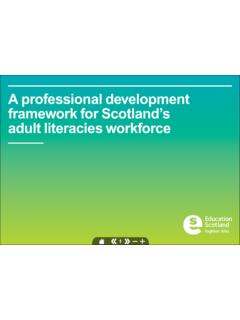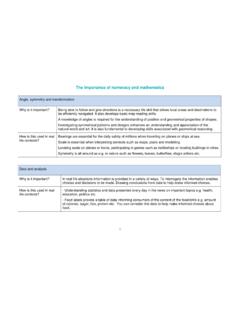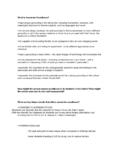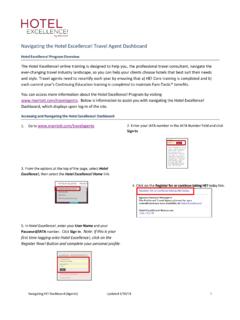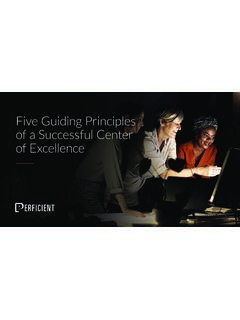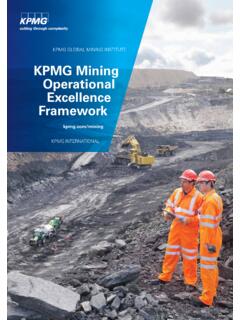Transcription of Curriculum for Excellence Factfile – Overview of Key Terms ...
1 Speaking to parents and carers with for Excellence Factfile Overview of Key Terms and FeaturesCurriculum for Excellence (often shortened to CfE) is the Curriculum in Scotland which applies to all children and young people age 3-18, wherever they are learning. It aims to raise achievement for all, enabling young people to develop the skills, knowledge and understanding they need to succeed in learning, life and Factfile explains some of the Terms that are used in CfE. You can contact your own school or nursery for more information or go to The Four Capacities the Curriculum aims for all children to become: Successful Learners Confident Individuals Responsible Citizens Effective ContributorsThe Seven Principles of Curriculum Design all learning must take account of these principles: Challenge and enjoyment Breadth Progression Depth Personalisation and choice Coherence RelevanceThe Eight Curriculum Areas containing a range of subjects.
2 Expressive Arts including art and design, dance, drama and music Health and Wellbeing mental, emotional, social and physical wellbeing, PE, food and health, substance misuse and relationships, sexual health and parenthood Languages listening and talking, reading and writing in literacy and English and modern languages, plus classical languages and literacy and G idhlig/Gaelic learners (where available) Mathematics including analysing information, solving problems and assessing risk Religious and Moral Education (denominational and non-denominational)
3 Learning about Christianity, other world religions, and developing values and beliefs Sciences understanding important scientific concepts across planet Earth, forces, electricity and waves, biological systems, materials and topical science Social Studies understanding people, place and society in the past and present including history, geography, modern studies and business education Technologies including computing science, food, textiles, craft, design, engineering, graphics and applied for Excellence Bringing life to learning and learning to life June 2011 (September reprint)Speaking to parents and carers with addition there are three key areas which are covered by all teachers/practitioners.
4 Literacy across learning talking, listening, reading and writing (including using digital communications) Numeracy across learning including money, time, and measurement Health and Wellbeing across learning including making informed choices for a healthy lifestyleImportant themes across the Curriculum are creativity, enterprise and global citizenship, which includes sustainable development, international education and and Outcomes each Curriculum area is broken down to a set of experiences and outcomes (often referred to as the Es and Os ).
5 Experience describes the learning Outcome what the learning will achieve. This is often explained, from the pupil s perspective, as an I can levels there are national levels to describe different stages of learning and progress. For most* children, the expectation is: Early Level pre-school to the end of P1 First Level to the end of P4 Second Level to the end of P7 Third and Fourth Levels S1 to S3, with the fourth level broadly equivalent to SCQF (see abbreviations section) level 4 Senior Phase (see Entitlements)
6 S4 to S6, and equivalents in other settings, where they can continue to develop the four capacities and achieve qualifications *but can be earlier/later for some as applicable, depending upon individual needs and aptitudesEntitlements all young people are entitled to: A coherent Curriculum smooth progression through the experiences and outcomes A broad general education the period from age 3 to the end of S3, covering all of the experiences and outcomes across all Curriculum areas up to and including the third level, and further experiences and outcomes at the fourth level, chosen to provide greater specialisation and depth Support assistance to help learners access the Curriculum , for example because of short- or longer-term needs or circumstances.
7 And help to build resilience Skills for learning, life and work to develop pre-vocational, enterprising and employability skills, personal skills, high levels of cognitive skills and the opportunity to put learning into a practical context A senior phase to prepare for qualifications and develop skills for future learning, life and work Positive destinations to support young people to move successfully on to work or further study learning Differently CfE represents a different approach to learning in schools intended to help learners develop skills, knowledge and understanding in more depth.
8 Examples of how they will learn differently are: Using technologies in learning to find material, communicate, create and present Active learning being actively engaged, whether mentally or physically, using real life and imaginary situations Cooperative learning encouraging thinking and talking together, to discuss ideas and solve problems Interdisciplinary learning using links between different areas of learning to develop, reinforce and deepen understanding Outdoor learning making use of the outdoor environment for learning Personalisation and choice being given choices and being involved in planning how and what they learn.
9 Not one size fits all Skills CfE emphasises the development of skills for learning, life and work. These include higher order skills thinking about complex issues, problem solving, analysis and evaluation; creativity; and critical thinking skills making judgements and decisions, developing arguments and solving complex problemsAssessment is crucial to tracking progress, planning next steps, reporting and involving parents and learners in learning. Evidence of progress can be gathered by learners themselves, and by fellow pupils (peers)
10 , parents, teachers and other professionals, staff who provide youth development opportunities such as the John Muir Award and the Duke of Edinburgh for excellenceSUCCESSFUL LEARNERS > CONFIDENT INDIVIDUALS > RESPONSIBLE CITIZENS > EFFECTIVE CONTRIBUTORSS peaking to parents and carers with Self assessment learners will be encouraged and supported to look at and revisit their own work, to develop a better understanding of what they have learned, and what they need to work on Peer assessment learners will be encouraged and supported to work together to help others assess what is good about their work and what needs to be worked on Personal learning planning pupils, teachers and parents will work together to develop planning for next steps in learning Profiles a statement of achievements both within and out with school, to be introduced at P7 (2011/12) and S3 (2012/13).
